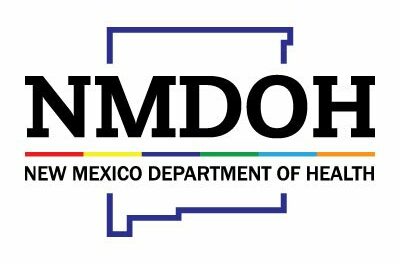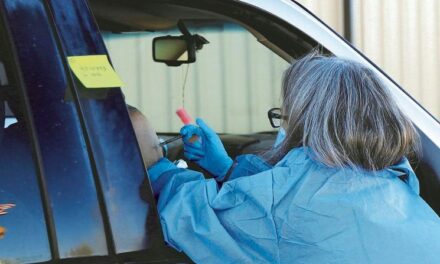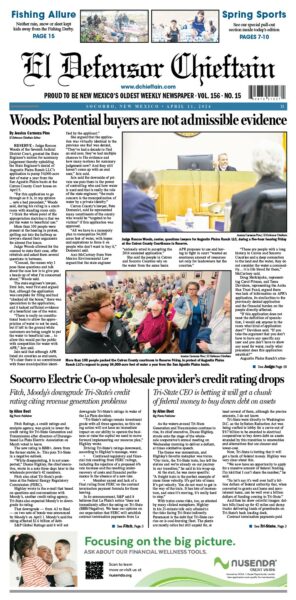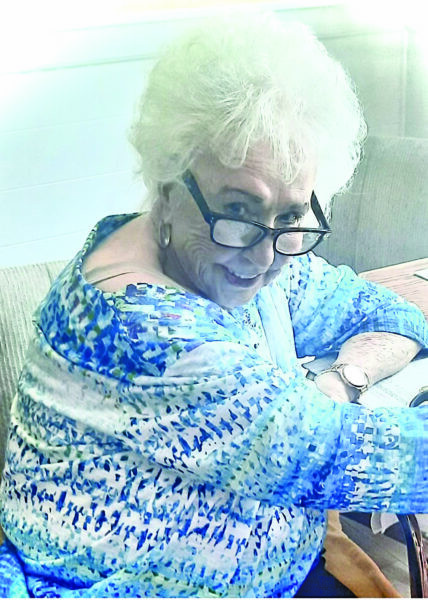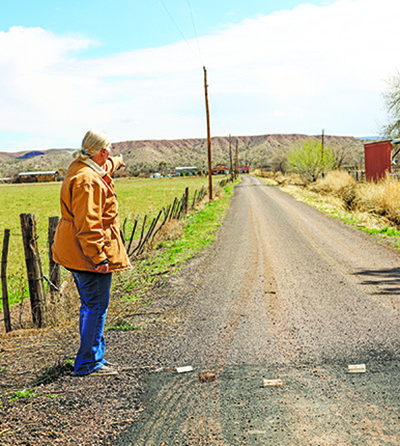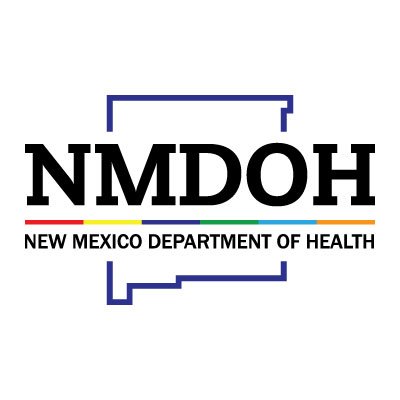
According to DOH, a dose of Pfizer for children 5-11 contains one-third the amount of active ingredient compared to the adult dose, and side effects are milder than in older children. Children would receive a second dose 21 days or more after their first shot. The CDC estimates that every 10 vaccinations in the 5-11 age group can prevent a COVID case in the same age group.
“Our children continue to be vulnerable without a vaccination,” DOH Deputy Secretary Laura Parajon said. “We encourage parents to schedule appointments with their medical provider or via vaccineNM.org so kids can go back to being kids.”
The latest state data shows one-quarter of the confirmed coronavirus infection cases reported in New Mexico over the past week were among children, but the number of hospitalizations among children has remained small.
Socorro County posted what may be its one-day record for new COVID-19 cases last Friday, with 20 new infections in a single 24 hour period reported by the DOH.
Following that, 22 positive cases were recorded over the weekend.
The latest data released by the CDC showed that Socorro County’s COVID-19 positivity rate for the seven days ending November 9 was 7.96 percent. The number of new cases in that seven-day period was 49. Twenty of those cases were reported solely on Friday.
The other seven-day metric – cases per 100,000 – was 294.52. Based on the old color-coded system, this would keep Socorro County in the red category.
According to the CDC website, 10,217 people in Socorro County 12-and-over are fully vaccinated, 71.8 percent of the county’s 12-and-over population. And 61.4 percent of the county’s total population.
There had been no new COVID-19 admissions to Socorro General Hospital in the seven-day period, although one new death was reported on Thursday, Nov. 4, bringing the total to 64 since the pandemic began.
New Mexico ranks fifth in the country for new COVID-19 infections per person over the past seven days, according to the CDC.
Statewide, 73 percent of New Mexicans 18-and-over are fully vaccinated, and 63.4 percent in the 12-17 age group have received one dose. In that age group, 55 percent are fully vaccinated. Fourteen percent of New Mexicans 18-and-over have received a booster shot.
State health officials announced on Monday that 5,124 New Mexicans had died due to COVID-19. In the past four weeks, 96.4 percent were of unvaccinated people.
At New Mexico Tech the vaccination policy was updated two weeks ago by President Stephen Wells. In an email, he said that all students, staff and faculty directly compensated by a federal contract are required to be fully vaccinated as of December 8.
Vaccines and Testing
The Health Department is administering the Pfizer-BioNTech, Moderna and J&J vaccines on Mondays and Wednesdays from 1-3 p.m.
The Magdalena Clinic offers COVID vaccines every Thursday at 11 a.m. for a first, second, or third dose for anyone who is immunocompromised. The Magdalena clinic doesn’t offer Pfizer-BioNTech vaccine, which must be stored at ultra-cold freezer temperatures. The clinic in Magdalena doesn’t have an ultra-cold freezer.
To make an appointment for a vaccine create a profile by filling out an online registration form at vaccineNM.org.
Residents who received the Moderna or Pfizer vaccine at least six months ago can get a booster if they are either:
- 65 or older.
- At least 18 and live in a long-term care setting, have certain underlying medical conditions, or work or live in high-risk settings, such as in education, grocery stores and law enforcement.
In Albuquerque, a free family vaccine event will be held this Saturday at the Mexico Consulate, 1610 4th Street NW from 8 a.m. to 4 p.m. The event, featuring prizes, live music, and a raffle for multiple Walmart gift cards from $50 to $300, was announced by the NM DOH in support of the Mexico Consulate. Participants are not required to have insurance, nor present any identification. However, masks will be mandatory for everyone over the age of two.
The extension of the statewide requirement that face masks be worn in all indoor public spaces will expire on November 12. The governor may decide to extend or lift the mask requirement, as necessary, depending on the analysis of the state Medical Advisory Team and state health officials. The mandate is in effect regardless of vaccination status and with limited exceptions.
The highly contagious nature of the delta variant, New Mexico DOH Secretary David Scrase said, is clearly playing a role in the spread of the disease.
It’s also possible, Scrase said, that New Mexico may be seeing signs of immunity waning from its first waves of vaccinations – something that might pop up in New Mexico earlier than elsewhere because the state vaccinated a higher proportion of its population earlier.
But Scrase did not say waning immunity was a definitive cause.
Regardless of the reason, Scrase encourages anyone in the state who’s eligible for a booster shot to get one.
As far as testing goes, the CDC reported 503 tests performed in Socorro County during the seven days ending Sunday, Nov. 7.
New Mexico Tech conducts on-campus COVID-19 testing every Monday, Tuesday, and Wednesday throughout the fall semester at the Fidel Student Center.
Testing also continues at the Public Health Department, 214 Neel Ave., on Mondays and Wednesdays from 9-11:30 a.m.
Precautions remain the same. Wear a mask when in public and around others. If you are sick, stay home as much as possible.
Those who experience symptoms of COVID-19 infection, such as fever, cough, shortness of breath, chills, repeated shaking with chills, muscle pain, headache, sore throat, congestion or runny nose, nausea or vomiting, diarrhea, and/or loss of taste or smell should call their health care provider or the NMDOH COVID-19 hotline immediately at 855-600-3453.
DOH strongly encourages the following groups to get tested:
- Symptomatic people displaying the COVID-19 symptoms of fever, cough, shortness of breath, chills, repeated shaking with chills, muscle pain, headache, sore throat, congestion or runny nose, nausea or vomiting, diarrhea, and/or loss of taste or smell;
- Asymptomatic people who are close contacts or household members of people in their infectious period who have already tested positive for the coronavirus;
- Asymptomatic people who live or work in congregate settings such as long-term care facilities and group homes;
- Patients who are scheduled for surgery and whose provider has advised them to get tested before the procedure.
The DOH has active investigations into the positive patients, which includes contact tracing and swabs of symptomatic individuals who have had contact with the positive cases.


